Explained: What is BeReal?
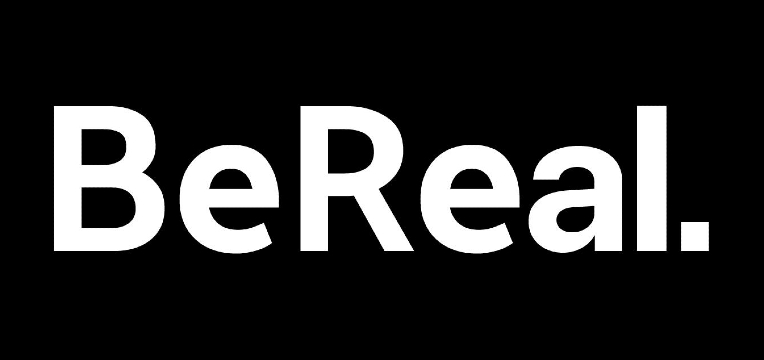
BeReal is a popular photo-sharing app that lets users share one photo per day to show their followers what they are doing at that moment. It differs from other social media platforms by encouraging users to share unfiltered snapshots of their lives, and by only allowing one post per day.
How does it work?

Users get a notification saying “Time to BeReal” at a random time once per day. In the app the user has a two-minute time limit in which to take a picture of what they are doing at that moment. While pictures can be posted after users receive a notification, how long after, or how “late” this is, will be displayed above the picture in the BeReal newsfeed.
BeReal claims to capture a realistic, unfiltered, snapshot of a user’s life. There are no editing options or filters, and the image features pictures that have been simultaneously taken by the back and front cameras. It means that followers see both what is in front of you when you take the picture, and your face.
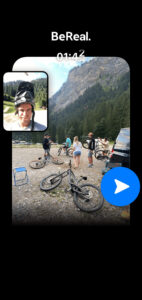
Like many other social media apps, the BeReal newsfeed function shows what others have shared, however you can only see those posts after you have posted a picture yourself.
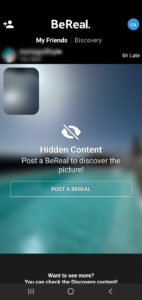
The app has options to allow users to react to other people’s posts with five standard emojis and the option to send an Instant RealMoji. With an Instant RealMoji users can take a picture of themselves, and that picture is the ‘emoji’ used in reaction to a post.
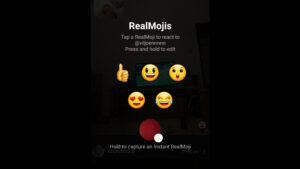
Posts are only live for 24 hours, with users unable to see what posts that have previously been shared. Similar to Story posts on apps like Snapchat and Instagram.
Why do teenagers like it?
BeReal encourages users to share a realistic representation of what they are doing, rather than a more curated version that can seem to come across on other social media platforms. With no likes, follower counts, direct messaging, or hashtags, BeReal claims to be A new and unique way to discover who your friends really are in their daily life.
BeReal is popular with teenagers as an alternative from the more polished and curated content that can be seen on other social media platforms.
What is the age restriction?
BeReal’s Terms of Use outline that the app is for those aged 13 and older. When signing up, the app asks for a user’s date of birth before allowing access.
Key Features
- Users can only post once per day, at a random point in their day.
- You can only view other people’s posts if you have shared a post yourself
- Instead of setting your account to Private or Public, every time a user shares a post they have a choice to share it privately (My friends only) or publicly (Discovery)
- The Discovery newsfeed features posts that have been shared publicly and can be seen by everyone on the app. The Private “My friends only” newsfeed only shows posts from friends.
- If users have chosen to share their posts publicly, others will also be able to view their account profile.
- As only one post is allowed per day, if you visit another user’s profile you will only see what they have posted that day.
- Pictures shared on BeReal include an image that has been taken simultaneously by the front and back camera of your device.
- Users have a 2 minute window to take the picture they are sharing on BeReal.
- BeReal doesn’t have any editing or filtering options for pictures
- It doesn’t have Direct/Private messaging, Likes or Hashtags
Privacy and Safety
 The Privacy settings in BeReal are selected each time a user shares a post.
The Privacy settings in BeReal are selected each time a user shares a post.
When posting a picture, the default option is to share it privately with ‘My friends only’ , however users can choose to change the setting to ‘Everyone (Discovery)’ .
Choosing Everyone, or Discovery, shares the picture publicly with everyone on the BeReal Discovery newsfeed. This means that all users on BeReal can see the post, interact with it, and have the option to add you as a friend.
The ‘My friends only’ option means that only people you are friends with can view and interact with your post.
Your location will be displayed on the BeReal map, unless this option is disabled before sharing your post.
Reporting and blocking
If a post is inappropriate, the post or the user themselves can be reported. This can be done by selecting the 3 dots at the top of the post, or the user’s profile.

Users can be blocked, although iOS users don’t currently have the option to ‘block’ – only to unfriend users.
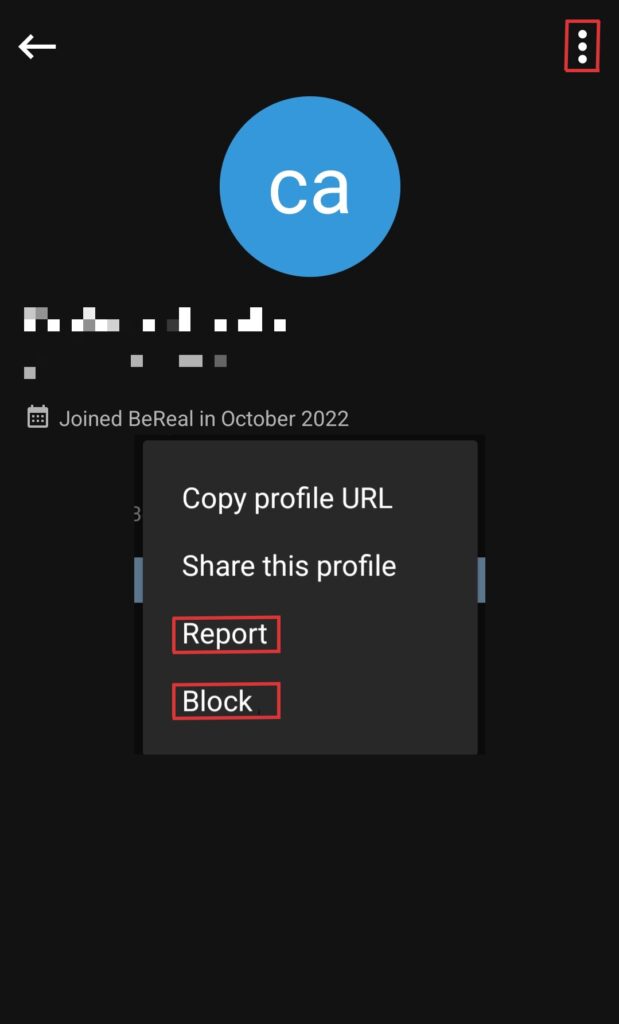
What do parents need to know
- The privacy settings are selected each time a user shares a post. The Private ‘My friends only’ option is the default setting, however users can choose to select the Everyone (Discovery) option to share their post publicly on the app.
- Posts on the Discovery newsfeed are public. If users share with everyone through the Discovery option it can be easy to connect with others, and add them as a “friend”.
- The location setting is automatically enabled before sharing a post, if this is enabled other users will be able to see your location on the BeReal map. If a user chooses to post to the Discovery newsfeed, this means that location information will be available to users you are not friends with.
- Some features are not accessible unless a user shares a post themselves. To be able to see other people’s posts on BeReal, users must share a post themselves. While BeReal will make users aware when someone takes a screenshot of their post, you can only find out how many people and who they are by sharing your BeReal post on another social media or messaging platform. This could create pressure on young people to upload and share posts because they want to be able to see what their friends are doing, or to access additional information.
- There are no parental controls to allow you to control the settings on the app and restrict what users can view or share.
- The time-limited window to take a picture could put pressure on users to share an image when they are in an inappropriate setting. It is important for young people to be mindful of their surroundings to avoid sharing something inappropriate online.
Advice for parents:
- Users may feel pressure to post on BeReal in order to be able to view other people’s posts, and/or for information if someone has taken a screenshot of their posts. Have ongoing conversations with your child to encourage positive self-esteem online, and these Talking Points can be a useful way to start that chat.
- Social media can be a great way to broaden your circle of friends, but it is important to discuss key considerations about making friends online, and who they are interacting with.
- Ensure that your child understands how the app works, its privacy settings, how to report inappropriate content, and that they know they can come to you if something bothers them online.
- Talk to your child about posting and sharing online, and to consider the importance of keeping personal information and location details safe.
- TalkListenLearn – having regular open conversations is one of the most effective ways of supporting your child, and helping to ensure that they have a safe and positive experience. Get started using the fun and interactive #TalkListenLearn Topic Generator for conversation starters on a range of topics such as privacy, safety, and sharing online.





